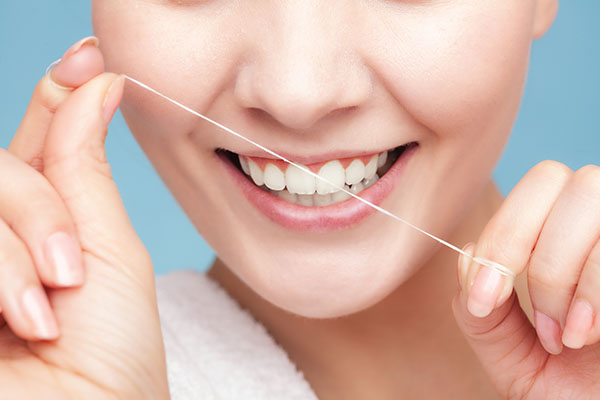How to Avoid Tooth Sensitivity from Teeth Whitening

Teeth whitening treatments are an effective way to remove stains and make teeth whiter. There are many different products that can be used for this purpose. Some can be purchased over the counter at grocery stores, but the most potent bleaching agents are reserved for professional use by dentists only.
The American College of Cosmetic Dentistry states that a single whitening session can improve the color of a person's teeth by as much as 10 shades after a single visit.
How teeth whitening works
There are two major classes of products that are used for whitening treatments: bleaching and non-bleaching. The latter is used to eliminate surface stains from a patient's teeth, but it does not improve the color of a tooth's inner layers. On the other hand, bleaching products typically contain carbamide peroxide, and these seep into the inner layers of the tooth, whitening these areas as well as the surface.
Tooth sensitivity and whitening treatments
Whitening treatments can lead to increased tooth sensitivity for some patients. It is caused by a bleaching agent soaking into the dentin and leaving the nerves inside exposed. It leads to enhanced responses when the patient's teeth come in contact with sweet, hot/cold foods or beverages.
Whiteners that do not contain a bleaching agent like carbamide peroxide typically lead to less sensitivity. On the other hand, over-the-counter products are usually more likely to lead to increased sensitivity, especially if the product is in gel form.
The degree of sensitivity a patient deals with often depends on factors such as how long contact lasted with the whitener and how concentrated the solution used is. Professional bleaching solutions have the highest concentrations since they are only used by trained professionals who can safely administer them.
Whitening treatments can also lead to the irritation of the gums if the product is allowed to seep into them. This is highly unlikely to occur when the procedure is being performed by a dentist, but it is a possibility when over-the-counter products are used. Over-the-counter whiteners often come with a standard, one-size-fits-all mouthguard that is used to apply the product. The fitting will not be as tight as if a customized mouthguard was used, so some of the product might make its way into the gums. Other side effects of bleaching treatments include:
- Increased pulp sensitivity
- Tooth root resorption
- Loss of restorative materials
Getting relief
The increased tooth sensitivity that is associated with whitening procedures is typically temporary. It can be reduced and managed by doing simple things like:
- Using a less concentrated whitener
- Reducing the length of time each treatment lasts
- Spacing out bleaching sessions more
- Using a desensitizing gel, toothpaste or varnish
- Brushing gently
- Avoiding hot and cold foods
- Using desensitizing tools prior to and after treatments
Start your journey towards whiter teeth
Reduce the odds of your teeth becoming more sensitive by getting your whitening procedures performed by a professional. Our dentist will take every step to ensure you end up with whiter teeth while dealing with little or no sensitivity. Call or visit our clinic today.
Request an appointment here: https://www.missionviejosmile.com or call Basti Dental Care at (949) 201-4721 for an appointment in our Mission Viejo office.
Check out what others are saying about our services on Yelp: Read our Yelp reviews.
Related Posts
A kids dentist specializes in providing gentle, child-friendly dental care that helps young patients feel comfortable during their visits. Many children experience anxiety when visiting the dentist, making routine checkups challenging for both parents and dental professionals. By choosing a kids dentist, families can ensure a positive experience that encourages good oral health habits. With…
A restorative dentist focuses on diagnosing and treating dental problems that affect the function and appearance of the teeth. While general dentistry emphasizes prevention and maintenance, a restorative dentist provides solutions for damaged, decayed, or missing teeth. These services are essential for patients seeking to regain comfort, oral function, and confidence in their smiles. Our…
Denture wearers may develop a condition known as stomatitis, an inflammation of the gums and soft tissues underneath dentures. It is most common in people who wear full or partial dentures for long periods, especially those who leave their dentures in while sleeping. Many people do not even realize they have it because it often…
Although X-rays in general dentistry have been used for ages, digital X-rays are proving to be more efficient and safer. They offer numerous benefits that traditional ones do not, making them more popular among general dentistry practices. Here is what you can expect from the use of digital X-rays in general dentistry.Outlined below are some…
